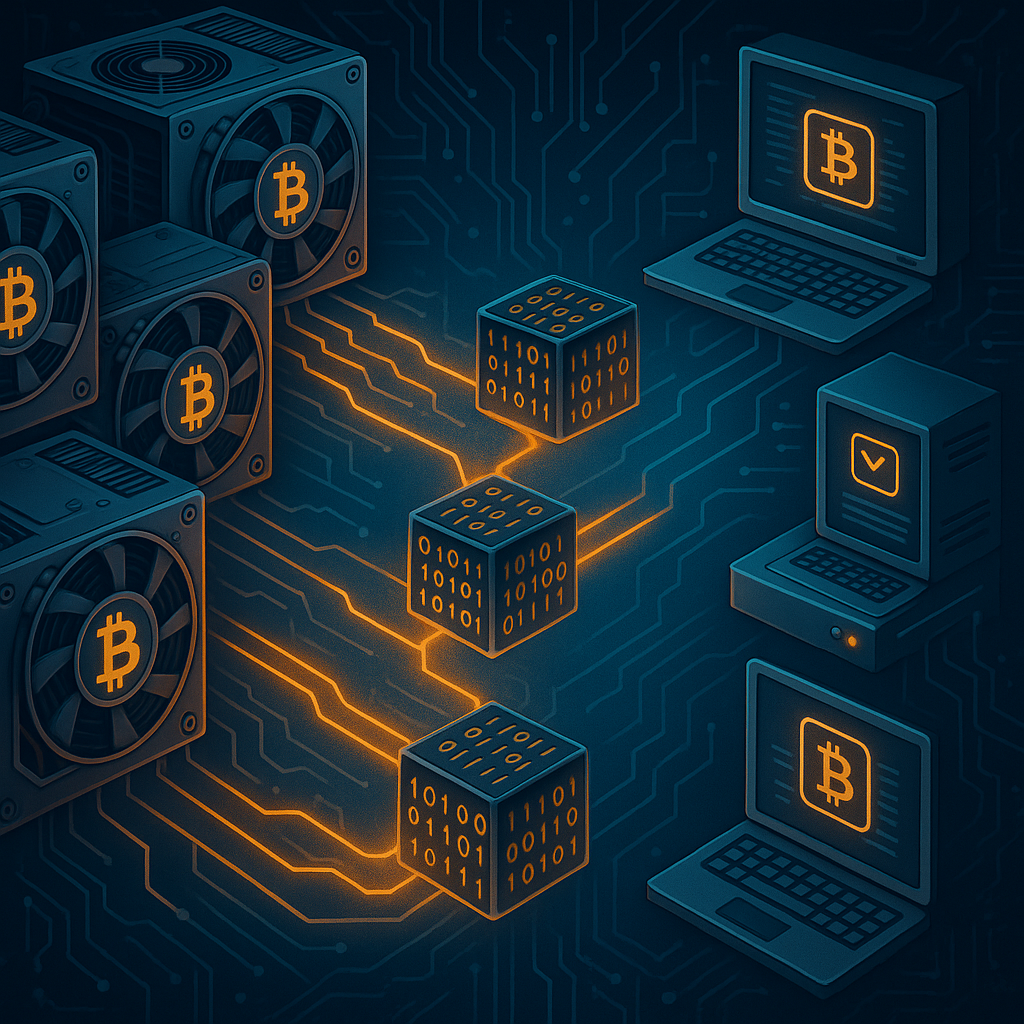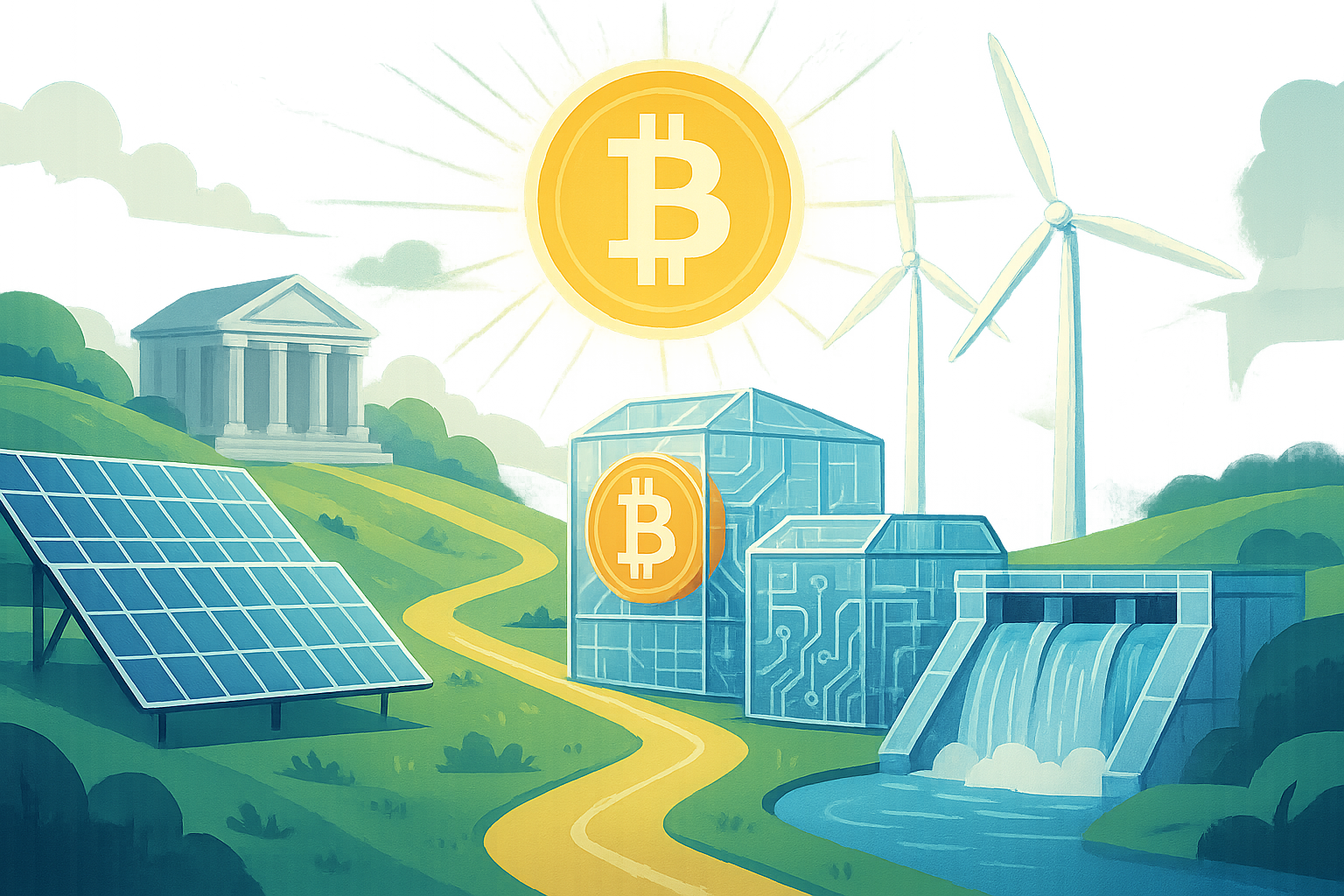 Myth #1: Bitcoin Uses Too Much Energy
Myth #1: Bitcoin Uses Too Much Energy
Bitcoin is often attacked for its energy use. The reality is very different. Bitcoin does use energy, but it does so with purpose. That energy is what makes the system secure, transparent, and independent. It is not waste. It is the cost of freedom.
| Claim | The Truth |
|---|---|
| Bitcoin wastes energy | Bitcoin uses energy to secure a global financial system that cannot be manipulated or censored. |
| It uses more energy than it should | Bitcoin uses less energy than banking, gold mining, or military-backed fiat systems, and it does so with transparency. |
| Bitcoin energy is dirty | Many miners use clean, renewable, or stranded energy sources that have no other productive use. |
| The energy could be used elsewhere | Bitcoin consumes energy where it is cheapest and least in demand, making use of power that would otherwise be wasted. |
“Bitcoin does not waste energy. It converts it into freedom.”
 Critics love to claim that Bitcoin is an environmental disaster
Critics love to claim that Bitcoin is an environmental disaster
Headlines often shout that Bitcoin mining uses more energy than entire countries like Argentina or Norway. It is an easy target, but it is also a misleading one.
These comparisons grab attention but ignore the bigger picture. They miss the deeper purpose and fail to weigh the trade-offs that actually matter.

Not Waste — Security
Bitcoin is not just running code.
It is securing the most open, transparent, and seizure-resistant monetary system the world has ever seen. That energy is not waste. It is what gives Bitcoin its integrity.
Bitcoin is not running a casino. It is not fueling a Netflix binge or serving ads on social media. It is securing the most open, transparent, and seizure-resistant monetary network the world has ever seen.
Miners do real work. They solve cryptographic puzzles that make the network tamper-proof and unbreakable. This work cannot be faked or forged. The more energy spent, the harder it becomes to rewrite history or steal funds. That energy is what gives Bitcoin its finality, its integrity, and its security.


As one source puts it, Bitcoin is the most secure bank in the cloud.
That level of security does not come free. Nor should it.
Think about what it takes to protect value in the traditional system. Vaults. ATMs. Brinks trucks. Thousands of workers. All of that consumes vast amounts of energy too.
Let’s put this into context.
- No one complains about the energy used to run the banking system
- Armored cars drive cash around
- ATMs glow all night
- Vaults and branches sit half-empty
Same Energy, Different Standards
Gold mining is no better. It damages landscapes, uses chemicals, and burns fuel just to extract metal. Yet no one blames gold for climate change.
No one screams that gold is boiling the oceans.
Why is Bitcoin judged by a different standard?
Bitcoin mining is increasingly powered by clean sources: hydropower, solar, wind, even captured flare gas. These changes are not hypothetical. They are already happening.
The Internet uses over 10 percent of global electricity. No one calls it wasteful. Bitcoin is no different. In places like Nigeria, Argentina, and Ukraine, it provides monetary freedom where traditional systems fail.

 Bitcoin’s Energy Use: Problem or Perspective?
Bitcoin’s Energy Use: Problem or Perspective?
It’s true: Bitcoin uses energy. But so does everything we rely on—banks, gold, the internet. The better question is what we get in return.
When critics say Bitcoin consumes more energy than countries like Argentina, they miss the bigger picture. These headlines grab attention but overlook the trade-offs. Bitcoin’s energy use is transparent and purposeful. It doesn’t hide behind institutions or infrastructure we never see.





From Scarcity Comes Abundance
That is the promise. That is the power.
That is Bitcoin.

